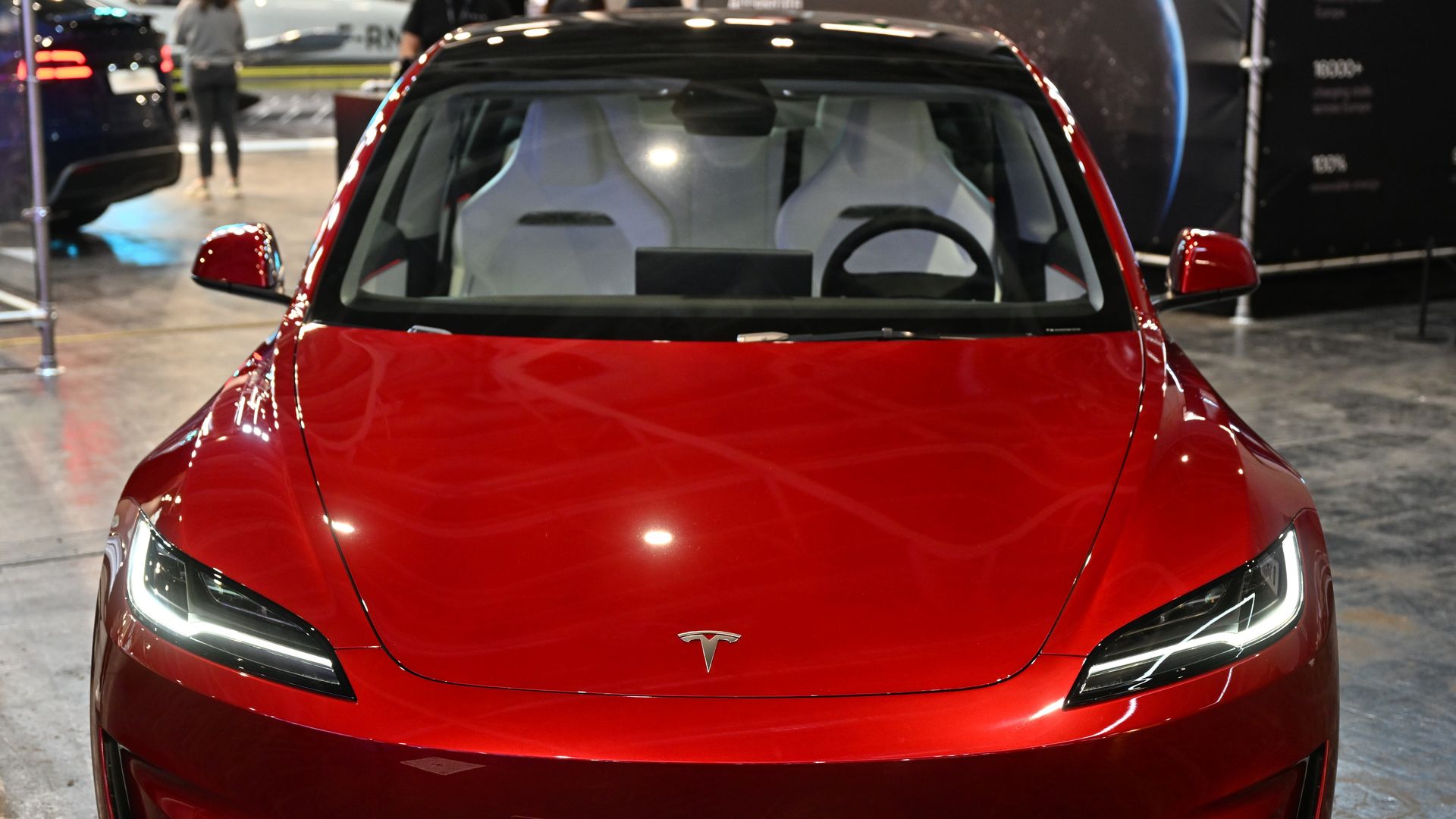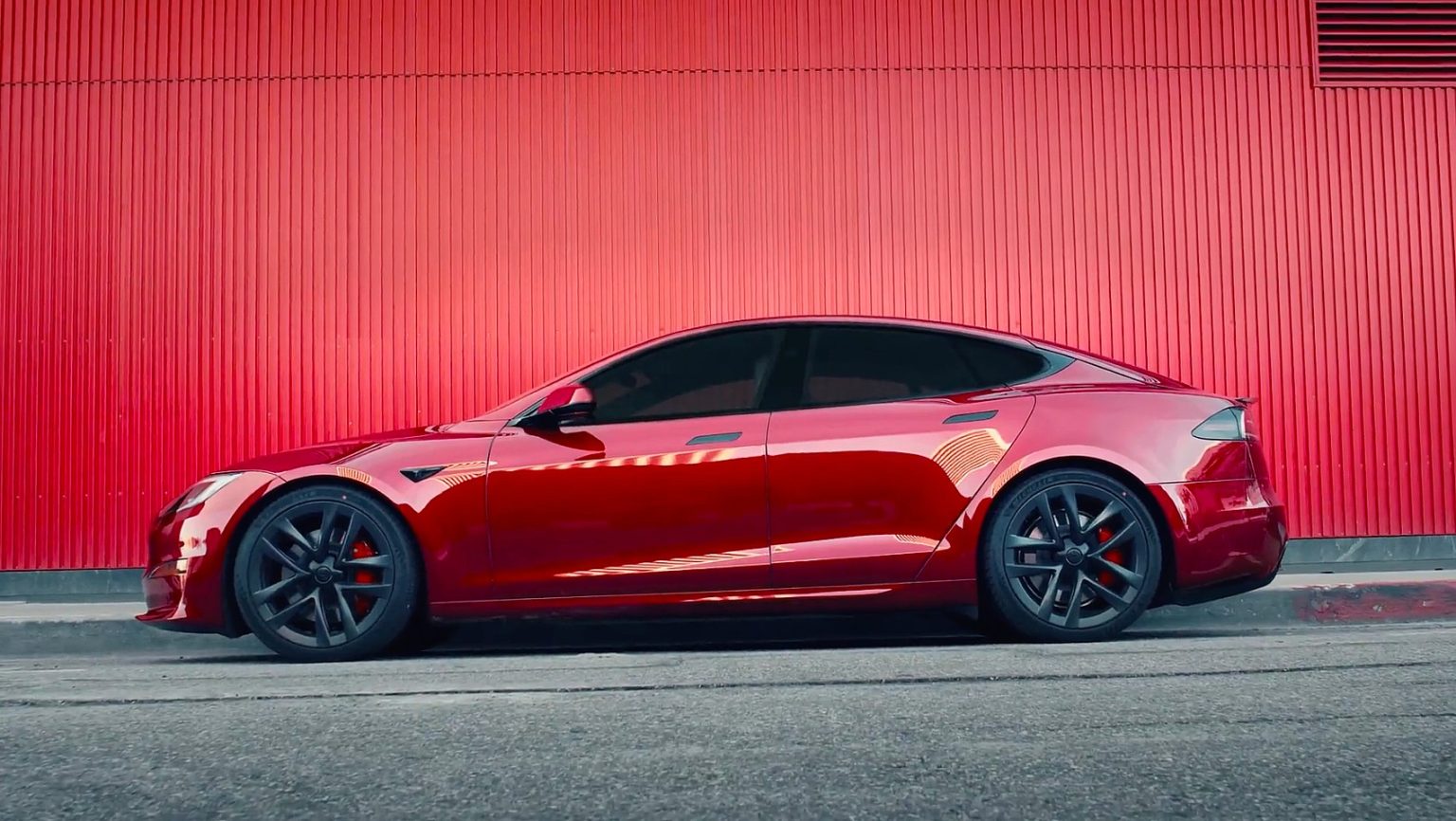Tesla Stock Rally: The Electric Storm That's Charging Ahead
The electric vehicle (EV) industry has been on fire, and Tesla is at the center of the storm. The company's stock price has surged in recent months, driven by a combination of factors that point to a bright future for electric cars and the companies that make them. But what does this surge say about the state of the EV industry, and what implications does it have for tax credits and the companies that rely on them? In this article, we'll explore the details of the Tesla stock rally and what it reveals about the future of electric vehicles.
Tesla's stock price has been on a tear in recent months, with some analysts predicting that it could continue to rise in the coming years. The company's strong financial performance, combined with its dominant market position and innovative products, have made it a hot commodity among investors. But the Tesla stock rally is more than just a market phenomenon - it's a reflection of the growing demand for electric cars and the changing attitudes of consumers and policymakers towards sustainability.
One of the key drivers of the Tesla stock rally is the expansion of tax credits for electric vehicles. In the United States, the tax credit for EVs is currently set at $7,500, and it's available for most eligible vehicles. However, the credit is set to phase out for many models by the end of 2022, which could have a significant impact on demand. To mitigate this, Tesla has been working to expand its production capacity and reduce costs, making its cars more competitive in the market.
The State of the Electric Vehicle Industry
The electric vehicle industry has been growing rapidly in recent years, with sales increasing by over 20% in 2020 compared to the previous year. This growth is driven by a combination of factors, including declining battery costs, improving range and performance, and increasing consumer awareness and acceptance of electric cars.
Key Statistics
- In 2020, over 2 million electric vehicles were sold worldwide, representing about 4% of total new car sales.
- The global electric vehicle market is expected to grow to over 14 million units by 2025, with China, the United States, and Europe driving demand.
- The average range of electric vehicles has increased by over 50% in the past year, with many models now offering ranges of over 300 miles.
The growth of the electric vehicle industry is driven by a range of factors, including government policies, technological advancements, and changing consumer attitudes. Governments around the world are offering incentives and subsidies to encourage the adoption of electric cars, and many companies are investing heavily in electric vehicle technology and infrastructure.
The Impact of Tax Credits on the Electric Vehicle Industry
Tax credits for electric vehicles have been a major driver of growth in the industry. The US tax credit of $7,500 has been instrumental in making electric cars more competitive with gas-powered vehicles, and many manufacturers are counting on the credit to help drive demand.
How Tax Credits Work
- In the United States, the tax credit for electric vehicles is available for most eligible vehicles, with the credit amount depending on the vehicle's battery size and cost.
- The credit is non-refundable, meaning that it can only be used to offset taxes owed.
- The credit is set to phase out for many models by the end of 2022, which could have a significant impact on demand.
The impact of tax credits on the electric vehicle industry is significant. Many manufacturers are relying on the credit to help drive demand and stay competitive in the market. In fact, some analysts predict that the credit will be a major factor in the success of many electric vehicle models in the coming years.
Concerns About the Phase-Out of Tax Credits
- The phase-out of tax credits for electric vehicles is a concern for many manufacturers, who are relying on the credit to drive demand.
- Some analysts predict that the phase-out will lead to a decline in sales, as manufacturers struggle to compete with gas-powered vehicles.
- However, others argue that the phase-out will actually drive innovation and competition in the industry, as manufacturers seek to find new ways to make electric cars more affordable.
The Future of Electric Vehicles
The future of electric vehicles is bright, with many manufacturers investing heavily in electric vehicle technology and infrastructure. The growth of the industry is driven by a range of factors, including government policies, technological advancements, and changing consumer attitudes.
Key Trends
- The adoption of electric vehicles is expected to continue to grow in the coming years, with many manufacturers predicting that EVs will make up over 50% of new car sales by 2040.
- The development of advanced battery technologies is expected to play a major role in the growth of the industry, with many manufacturers investing heavily in research and development.
- The expansion of charging infrastructure is also expected to play a major role in the growth of the industry, with many manufacturers investing in fast-charging technology and public charging networks.
The Tesla stock rally is a reflection of the growing demand for electric cars and the changing attitudes of consumers and policymakers towards sustainability. The expansion of tax credits for electric vehicles has been a major driver of growth in the industry, and the phase-out of the credit is expected to have a significant impact on demand. However, the future of electric vehicles is bright, with many manufacturers investing heavily in electric vehicle technology and infrastructure. As the industry continues to grow and evolve, it's clear that electric cars are here to stay.
Chaun Woo Parents Nationality
Michael Mando Uality
Who Is Brittany Forcengaged To
Article Recommendations
- Sahara Rose Real Name
- Kaitlyn Krems Fans
- Billieilish Pics
- Competitiveeo Rank
- Chaun Woo Parents
- Is Justin Bieberied
- Fitbryceadams
- Candy Manson
- Brooke Monkd
- Jessicaitzel



